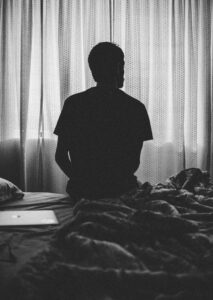Personality and the Radical Stress of Social Isolation
- May 10, 2021
- General

BY JOHN M. OLDHAM, M.D. & LOIS B. MORRIS
No matter how resilient our personality styles may be, we are all susceptible to the radical stress of a year of social isolation. We humans are social animals. Whether we’re naturally outgoing or reserved, we need to be with each other. Adjusting to constraint is hard work, especially for some of us.
Personality in isolation
New York Times columnist David Brooks wondered how “a year-plus of social distancing has changed our personalities.” He rightly pointed out that our personality traits are usually pretty stable. He noted, though, that his “extroversion muscles have atrophied” and his “introversion muscles are bulging. If you tracked me on a personality chart, I suppose ‘liveliness’ would be down and ‘reserved’ would be up; ‘carefree’ down and ‘anxious’ up.”
Stressed personality styles
Being reserved and seeking solitude can be common features of NPSP25 Solitary, Serious, Self-Sacrificing, or Sensitive styles. And indeed, people whose Personality Self-Portraits reveal a predominance of these styles may be better able to handle social isolation. People with social, outgoing, and/or attention-seeking styles—such as Adventurous, Aggressive, Self-Confident, Mercurial, or Dramatic—will be climbing the walls.
Distress and resilience
Of course, all of us get some form of Zoom fatigue or cabin fever. For the most part, our personalities will bounce back when the all-clear bell sounds. As psychiatrist Richard A. Friedman commented recently, “[t]he ability to cope with adversity is the essence of resilience—but it doesn’t mean there is no psychological distress. To the contrary, anxiety and sadness are common reactions, but these responses are typically manageable and temporary.”
When social isolation doesn’t end
But some among us will be depressed or inordinately anxious, especially if we’re not just isolated but derailed without a job or even a home. For those who do bounce back, try to remember what this taste of social isolation did to us. Now turn up the volume and imagine being imprisoned, being a refugee, being hated and stigmatized. Maybe our compassion muscles will grow stronger.
That would be a good outcome, too.
Photo by Ahmed Nishaath on Unsplash

